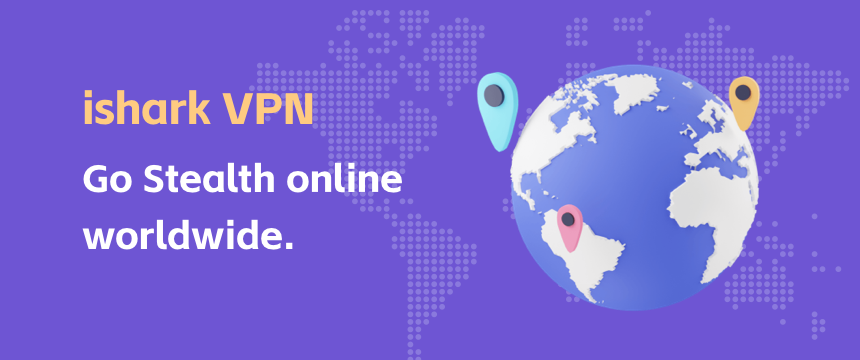VPN Leaks and Privacy Protection
ishark blog article
VPN (Virtual Private Network) has become a widely used tool for safeguarding online privacy, encrypting internet traffic, and accessing geo-restricted content.
However, despite its advantages, users should be aware of potential leaks that could compromise their privacy and security.
This article aims to explain the concept and impact of VPN leaks, such as DNS leaks and IP address leaks, and explore methods to prevent such leaks.
Emphasizing the importance of protecting personal privacy, especially when using VPN, this article will provide essential tips and precautions to ensure a secure VPN experience.

Understanding VPN Leaks and Their Impact
1. DNS Leaks
DNS (Domain Name System) is responsible for converting human-readable domain names into computer-understandable IP addresses.
A DNS leak occurs when a VPN fails to route DNS requests through the VPN tunnel, potentially revealing the user's browsing history to their ISP or other third parties.
This leak compromises user privacy, as their online activities are no longer hidden from prying eyes.
2. IP Address Leaks
An IP address leak occurs when a VPN connection reveals the user's real IP address, instead of masking it with the VPN server's IP address.
This leak can lead to the user's actual location being exposed, which may result in geo-restrictions being applied, defeating the purpose of using a VPN.
Methods to Prevent VPN Leaks
1. Use a DNS Resolver
To prevent DNS leaks, users can opt for a secure DNS resolver. Some VPN providers offer their own DNS resolver, ensuring that DNS requests are routed through the VPN tunnel and not exposed to external DNS servers.
2. Enable Leak Protection Features
Many reputable VPN services provide built-in leak protection features. These features automatically block all non-VPN traffic, including DNS and IPv6 traffic, to prevent any potential leaks. Users should ensure that such features are enabled in their VPN client settings.
3. Perform DNS Leak Tests
Regularly conducting DNS leak tests is crucial to identifying and addressing any potential leaks. Several online tools are available to perform DNS leak tests, allowing users to verify the effectiveness of their VPN in protecting against leaks.
4. Choose a Reliable VPN Provider
Selecting a trustworthy VPN provider is key to ensuring privacy and security. Research the provider's privacy policy, encryption protocols, and commitment to user confidentiality before subscribing to their service.
5. Disable IPv6
IPv6 is the latest version of the Internet Protocol and may not always be compatible with VPN services. Disabling IPv6 on devices prevents potential IPv6 leaks and ensures all traffic is routed through the VPN tunnel.
Importance of Safeguarding Personal Privacy When Using VPN
The importance of protecting personal privacy cannot be overstated, especially in an age where online data is vulnerable to hacking and surveillance.
Using VPN adds an extra layer of security and anonymity, but users must take additional precautions to maximize their privacy:
Avoid sharing sensitive information while using public Wi-Fi networks.
Regularly update VPN clients and devices to ensure the latest security patches are in place.
Use strong and unique passwords for all online accounts.
Be cautious when downloading files or clicking on links from unknown sources.

Conclusion
VPN leaks, such as DNS and IP address leaks, can pose significant threats to user privacy and security.
However, by using a reliable VPN service, enabling leak protection features, and performing regular DNS leak tests, users can effectively prevent such leaks.
Safeguarding personal privacy is of utmost importance, especially in the digital age, and employing VPN responsibly ensures a safer and more private online experience.









